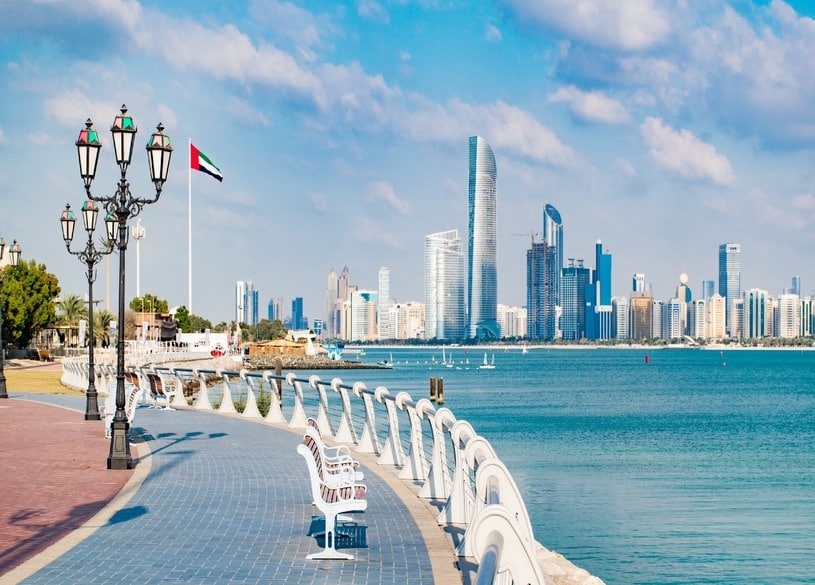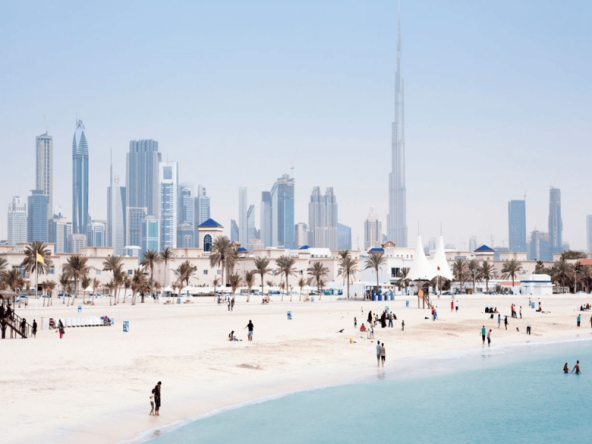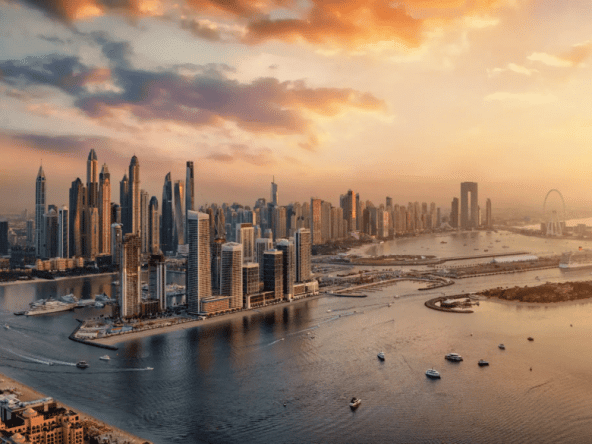The Abu Dhabi property market has shown consistent growth through the third quarter (Q3), driven by robust economic fundamentals, government incentives, and an influx of foreign investors. This report explores the most significant factors influencing Abu Dhabi’s real estate sector, the trends shaping the market, and insights for investors seeking strategic opportunities.
Overview of Abu Dhabi’s Q3 Real Estate Growth
Abu Dhabi’s property sector has remained resilient despite global economic uncertainties. Real estate development has been supported by governmental policies promoting foreign ownership, investor-friendly reforms, and an active post-pandemic recovery strategy. This growth is further fueled by demand for high-end residential and commercial properties, especially in prime areas.
Key Drivers of Growth in Abu Dhabi’s Real Estate Sector
1. Governmental Reforms and Foreign Investment Policies
- Investment-Friendly Regulations: Recent legislative reforms have increased the accessibility of Abu Dhabi’s property market to foreign investors. Freehold ownership rights have expanded, allowing greater confidence and investment by non-UAE nationals.
- Golden Visa Incentives: The UAE’s Golden Visa initiative has attracted high-net-worth individuals by providing long-term residency in exchange for real estate investments. This policy has seen strong uptake, especially in high-value residential segments.
2. High Demand for Residential Properties
- Luxury Segment Growth: In Q3, Abu Dhabi’s luxury residential properties have become a focal point for wealthy investors. Demand for high-end, amenity-rich villas and apartments continues to rise, driven by individuals relocating to Abu Dhabi and regional investors seeking premium living standards.
- Family-Friendly Communities: Developments with integrated community amenities are particularly popular among expats. Locations such as Saadiyat Island and Yas Island are thriving due to their appeal as lifestyle-centric, family-friendly destinations.
3. Surge in Commercial Real Estate Demand
- Office Space Demand: The easing of pandemic restrictions has revitalized Abu Dhabi’s commercial real estate market. Demand for premium office spaces has surged, notably in the central business district (CBD) and adjacent areas.
- Flexible Workspace Solutions: With an increase in hybrid working models, demand for co-working spaces and flexible office layouts has grown, pushing developers to offer adaptable office solutions within high-demand commercial zones.
4. Infrastructure Development and Connectivity
- Transport Network Expansion: Major infrastructure projects in Abu Dhabi are enhancing connectivity across the emirate, benefiting the property market. New road expansions, metro developments, and transport links to Dubai have increased the desirability of properties near these transport hubs.
- Sustainable Infrastructure Investments: Abu Dhabi is advancing sustainable urban infrastructure, which has boosted the appeal of developments that align with eco-conscious values. These projects cater to residents and investors prioritizing environmental sustainability.
Market Segmentation Analysis
The Abu Dhabi real estate market is increasingly diversified, with developments targeting a range of investor profiles, from affordable housing to ultra-luxury properties. The following breakdown provides insights into each segment’s unique characteristics and performance in Q3:
Residential Properties
- Apartments and Villas: The demand for spacious, modern apartments with high-quality amenities has been met with ample supply in key locations. Villas in master-planned communities remain high in demand, especially among families and long-term residents.
- Eco-Friendly Residences: Properties with sustainable features, such as solar panels, energy-efficient designs, and green spaces, are experiencing a rise in popularity, aligning with global green living trends.
Commercial Properties
- Prime Office Locations: Office spaces in prestigious areas such as the CBD are witnessing high occupancy rates as businesses expand operations. The market for high-quality commercial properties is projected to grow, reflecting the region’s economic dynamism.
- Industrial and Logistics Hubs: With Abu Dhabi emerging as a logistics powerhouse, demand for industrial spaces is on the rise. Logistics parks and warehousing facilities near transport corridors are seeing high occupancy.
Retail and Hospitality
- Luxury Retail Developments: Retail spaces within high-end malls and tourism-centric areas such as Yas Island are showing strong performance. These developments cater to Abu Dhabi’s growing status as a luxury retail destination.
- Hospitality Sector Growth: As tourism rebounds, the hospitality market is buoyant. New hotels and serviced apartments are emerging, catering to tourists, business travelers, and long-term visitors.
Emerging Trends in Abu Dhabi’s Real Estate Market
1. Green and Sustainable Development
The UAE’s commitment to sustainability has had a profound impact on Abu Dhabi’s real estate projects, with an increasing number of green-certified buildings. Real estate developers are adopting eco-friendly building materials, reducing energy consumption, and integrating green spaces to meet demand for sustainable living.
2. Smart Home Technologies and High-Tech Infrastructure
Developers in Abu Dhabi are incorporating smart home technologies, enhancing property value and user experience. High-speed internet, automated security, and energy-efficient systems are becoming standard, particularly in high-end residences.
3. Increased Focus on Health and Wellness-Oriented Amenities
Post-pandemic trends have shaped consumer expectations, with greater demand for wellness-oriented amenities like gyms, parks, and communal spaces. Health-conscious residents seek homes within communities that provide an active, balanced lifestyle.
4. Enhanced Connectivity with Dubai and Other Emirates
With new transport links and inter-emirate commuting options, properties located near major transport hubs are seeing increased demand. Abu Dhabi’s improved connectivity to Dubai offers a significant draw for both daily commuters and long-term investors.
Investment Opportunities and Strategic Insights
1. Targeting High-Demand Areas
- Prime Locations: Areas like Saadiyat Island, Al Reem Island, and Yas Island have become hotspots for investment due to their established infrastructure, proximity to key amenities, and reputation as luxury hubs.
- Affordable Alternatives: For investors seeking stable returns in the mid-tier segment, regions offering affordable housing options provide reliable rental yields. Al Raha Beach and Khalifa City are popular choices for those targeting cost-conscious buyers.
2. Commercial Real Estate in Growth Corridors
With Abu Dhabi emerging as a business hub, investing in commercial properties in the CBD and areas near transport corridors is advantageous. Warehousing and logistics assets near key infrastructure will also likely benefit from the growing demand for e-commerce.
3. Residential Properties with Long-Term Rental Potential
Given the influx of expatriates and families relocating to Abu Dhabi, investments in residential properties with rental appeal are poised to yield steady returns. Luxury villas, family-friendly apartments, and sustainable homes are attractive to long-term renters.
Market Forecast for Q4 and Beyond
Looking forward, the Abu Dhabi property market is expected to continue its growth trajectory, with an anticipated increase in demand across residential, commercial, and industrial sectors. Expansions in tourism and continued foreign investment will support this trend. Developers are likely to emphasize luxury and sustainability as they cater to discerning local and international buyers.Contact us









